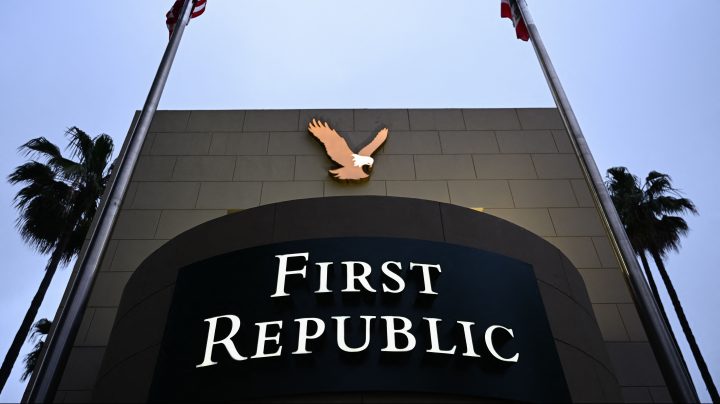
How interest-only mortgages can be risky for borrowers and lenders
How interest-only mortgages can be risky for borrowers and lenders

A big chunk of First Republic Bank’s loan portfolio, which now belongs to JPMorgan Chase, is what is called interest-only mortgages. That’s a kind of loan where, for a set period of time, the borrower pays only the interest before having to pay off any of the principal.
These kinds of mortgages were a key part of the high-flying economic climate that led to the 2008 financial crisis. They still have their risks.
Some interest-only mortgages allow borrowers to go up to 10 years without putting any money toward the principal. But interest rates can change.
That variable cost, combined with the principal you do eventually have to pay back, can cause what’s known as payment shock, said Danielle Hale, chief economist at Realtor.com.
“There is this future state where even if rates go down, you may still potentially face higher monthly payments,” she said.
Back in 2006, interest-only loans accounted for more than one-third of all new mortgages, estimated Guy Cecala of the research firm Inside Mortgage Finance.
After the housing crisis and recession that followed, the government introduced restrictions on who could get this kind of loan.
“Interest-only mortgages generally are only available to people with high incomes, large down payment, strong credit scores — the wealthy, in a nutshell,” he said.
But even when borrowers are wealthy, these debts can cause problems for lenders, especially if the banks are locked into low interest rates on the loans while money is getting more expensive for them to borrow. This is what’s known as an interest rate mismatch.
And it’s something that First Republic had to deal with, Cecala said. “They had to borrow money at 5%, when they were only getting 3.5% or 3% on most of the loans on their books.”
Cecala’s firm estimates that First Republic was the country’s biggest originator of interest-only mortgages last year.
But Danielle Hale at Realtor.com said they’re likely to become more of a niche product— especially as lenders see the problems they’re causing now.
There’s a lot happening in the world. Through it all, Marketplace is here for you.
You rely on Marketplace to break down the world’s events and tell you how it affects you in a fact-based, approachable way. We rely on your financial support to keep making that possible.
Your donation today powers the independent journalism that you rely on. For just $5/month, you can help sustain Marketplace so we can keep reporting on the things that matter to you.












